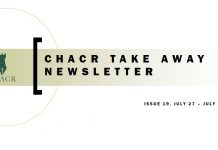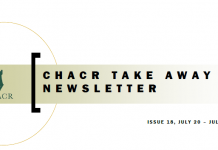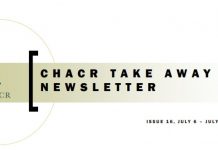This is the 17th issue of the weekly CHACR Take Away newsletter. In these newsletters, you will find links to the latest products by the CHACR, but also links to key reports and studies by external experts and institutions which we think you should pay attention to.
A Word From the Director
Having a hard look at history helps us to understand many things. If we manage to detach ourselves and look at the past as objectively as we can then we learn a great deal about ourselves – not least of all is why it is so hard for us to look at things as objectively as we can. Last year the CHACR conducted a Staff Ride in Delhi, a small group of British army officers along with officers from the Indian Army and Air Force studied the events that took place there in 1857. From the point of view of the Brits we were discussing ‘The Indian Mutiny’, or, for the slightly more sensitive and attuned Brits, the ‘1857 Uprising’. For the Indians we were discussing ‘The First War of Independence’, or, for the slightly more sensitive and attuned Indians, the ‘1857 Uprising’! It took a couple of days of the five-day exercise for both groups to become friends and to start to trust each other sufficiently to stop being wary and careful, and to start being much more open and honest in what they thought. One of the big lessons was just how different the lenses were through which the participants were looking, and thus how very different their conclusions were inevitably going to be about exactly the same questions. And yet, paradoxically, the second big lesson was just how similar the views of the participants turned out to be on most of the questions that delved right to the heart of the matter under debate. In short, once the participants stopped trying to be careful and started trying to explain what they really felt they started learning a huge amount more both from each other and about each other (and, interestingly, about themselves). And they left at the end of the week very much the better for it. So what? The bottom line is that I think that it is so hard to study history effectively because of the in-built biases that we carry – but that (and there are endless quotes from the great and the good, aren’t there) regardless of how difficult it may be, we must study history if we are to make sense of the present. And, in a final twist, the best way to understand our own biases, so that we can better study history, is to study our own history (and, if we are lucky enough to be able to do so, to study that history aided by those whose own experiences have been as different from ours as possible).
Maj Gen (Ret) Dr Andrew Sharpe





